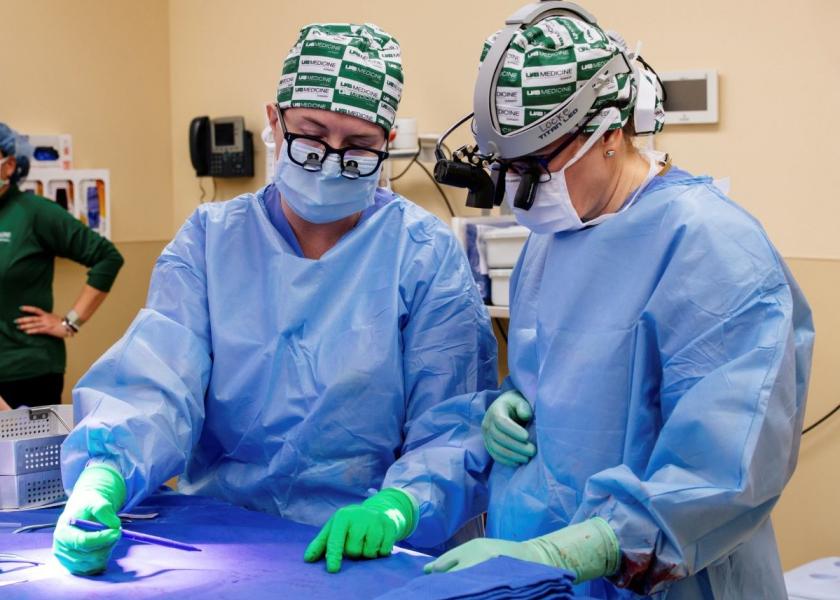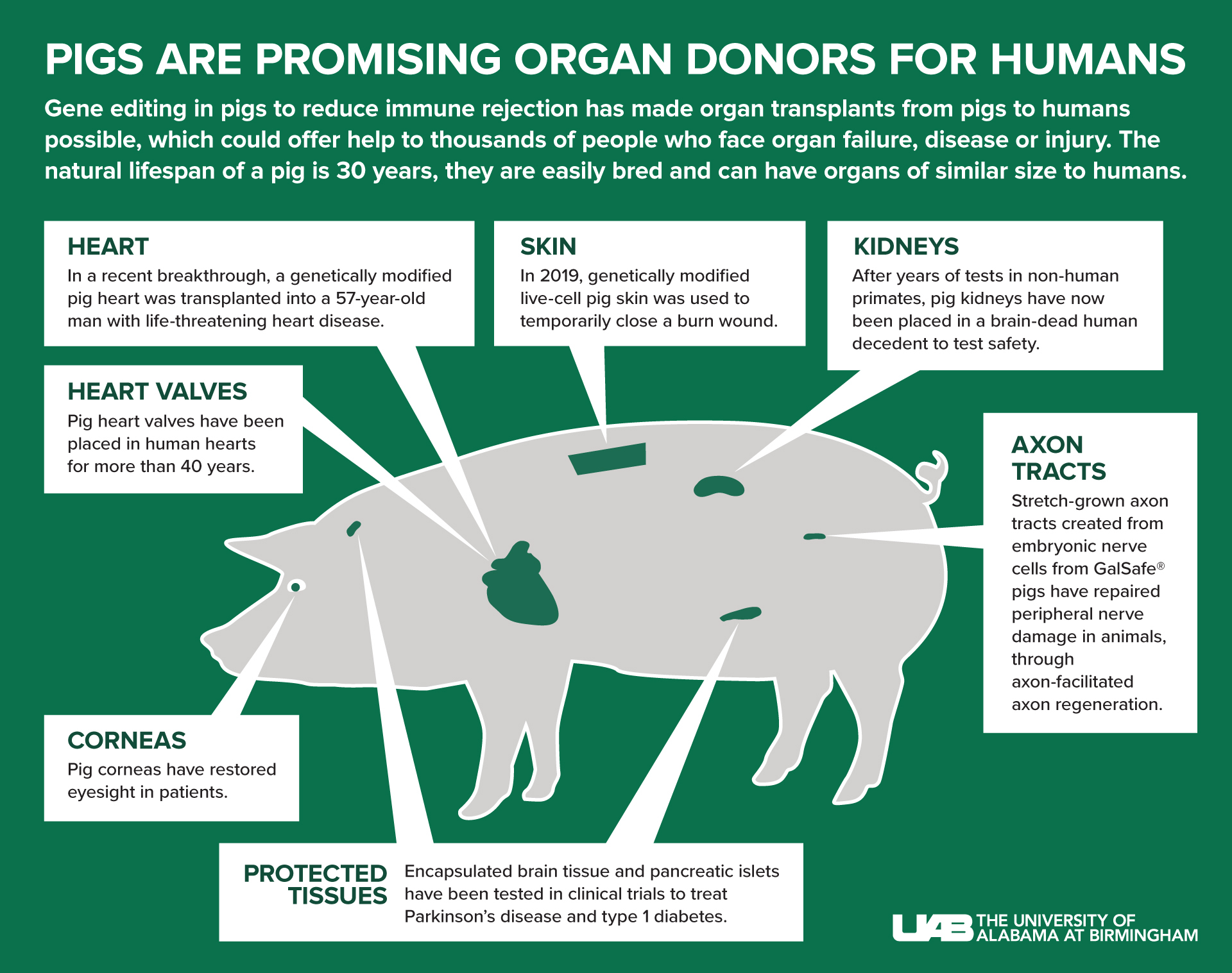New Study Shows Promise for Genetically Modified Pig Organ Transplants

An average of 17 people in the U.S. die every day while waiting for a transplant. More than 100,000 are on a waiting list. After decades of experimenting with alternatives, many doctors now see potential in replacing failing human organs with genetically modified pig organs, CNN reports.
Xenotransplantation, or cross-species organ transplantation, is still in the early stages. Although no human clinical trials are taking place that have been approved by the US Food and Drug Administration, researchers behind a study published in the Journal of Clinical Investigation say their findings might bring human trials even closer.

Source: University of Alabama at Birmingham
Doctors at the University of Alabama-Birmingham’s Marnix E. Heersink School of Medicine transplanted genetically modified pig kidneys into three people who were brain-dead and showed that they could do so using the same FDA-approved drugs used in human-to-human donations.
With any kind of transplant, whether from a human or an animal, doctors have to give the recipient medications that suppress their immune system so their body doesn’t reject the unfamiliar organ, CNN reports.
The researchers behind the study compared results from two pig kidney recipients who got the standard immune-suppressing drugs and an additional FDA-approved therapy called eculizumab with results from someone who got only the immune suppression drugs. The combination appeared to work best, the article said.
"These findings establish the ideal immunosuppression regimen for pig-to-human kidney xenotransplantation, and it is a regimen that is already FDA-approved and that we routinely use for human-to-human allotransplantation," Jayme Locke, professor of surgery in UAB's Marnix E. Heersink School of Medicine and lead author of the paper, said in a release. "Our research found combining common immune-suppressing drugs with a complement inhibitor effectively managed the initial human immune response against transplanted pig kidneys.
Locke said this is a major departure from what's been tried before in most non-human primate experiments and living human heart transplants, but fortunately, it's with a treatment regimen transplant doctors work with every day.
The paper marks the third major published xenotransplant finding for University of Alabama surgeon scientists since 2022, the university reports. In each case, the team used the Parsons model, a pioneering pre-clinical human research model in a recipient experiencing brain death.
The findings bring science one step closer to the promise of xenotransplantation as a therapy to potentially cure end-stage kidney disease—just as human-to-human allotransplantation can—and address the worldwide kidney organ shortage crisis.
"This finding is great news. We now know that we have an FDA-approved immunosuppression regimen already available. It's a regimen that we know the patient can tolerate, and it is a treatment transplant doctors are familiar with and already know how to use. This is another critical piece that I hope will soon lead to FDA clearance for a Phase I clinical trial in living humans," Locke said.
Editor's Note: Revivicor, Inc., a subsidiary of United Therapeutics, provided the genetically-modified pigs that were the source of the investigational xenotransplant kidneys called UKidney. The 10-gene edited pigs are raised in a secure, pathogen-free facility by University of Alabama animal care experts and are regularly tested for porcine cytomegalovirus (pCMV) and porcine endogenous retroviruses (PERV), including PERV-C. The pigs used in these studies tested negative for PERV-C and pCMV. This xenotransplantation study was led by the Division of Transplantation in the Department of Surgery, in close partnership with Legacy of Hope. Other key contributors to this work have included members of the Division of Infectious Diseases and the Division of Nephrology in the Department of Medicine; the Department of Anesthesiology and Perioperative Medicine; and the Department of Pathology. In addition to these specific contributors, the xenotransplantation program at UAB encompasses multiple departments and divisions of the Heersink School of Medicine and is also supported by numerous administrative and regulatory departments.
Read More:
Can Pigs Help People With Liver Failure? A New Study Shows Promise







